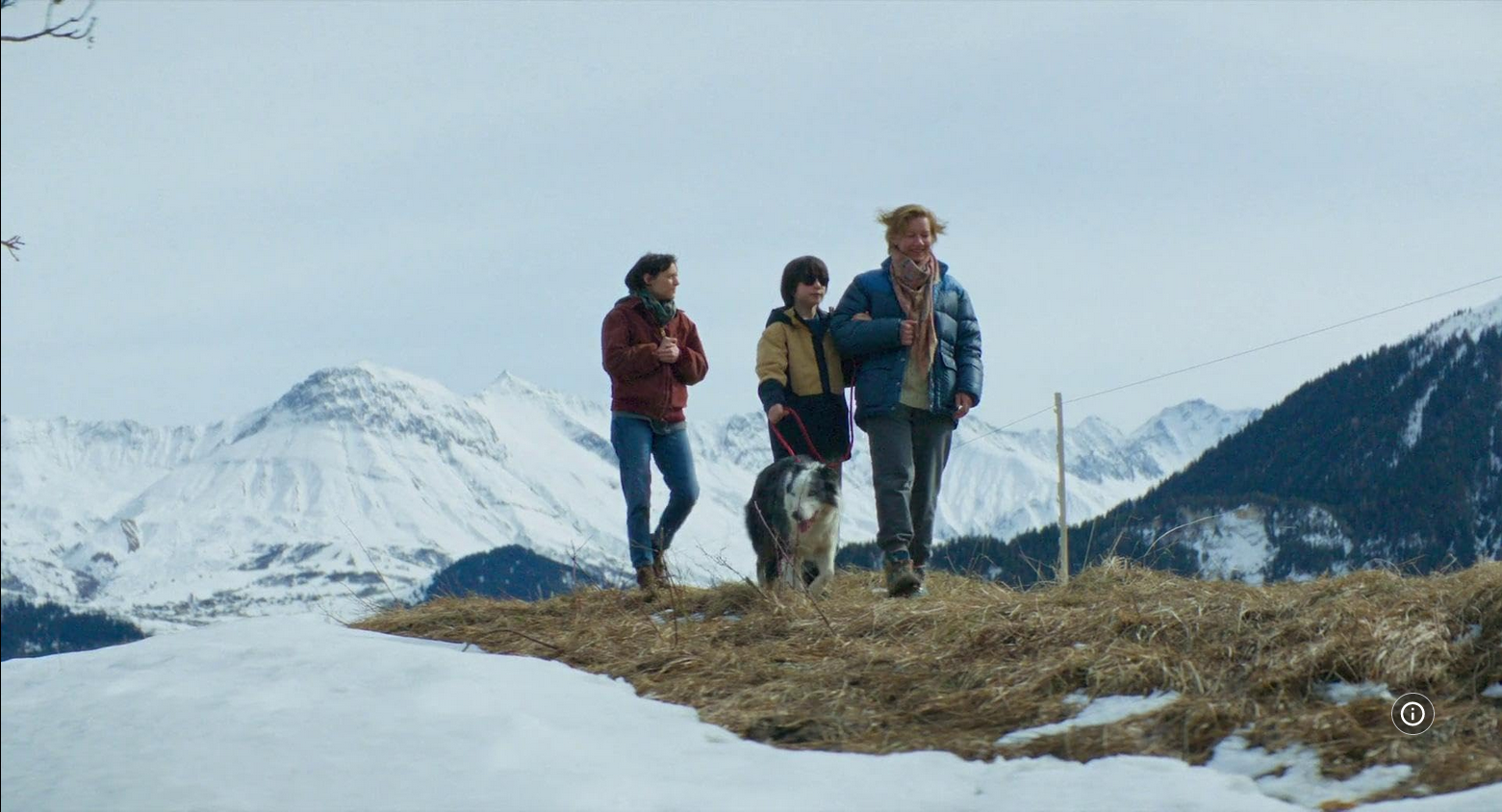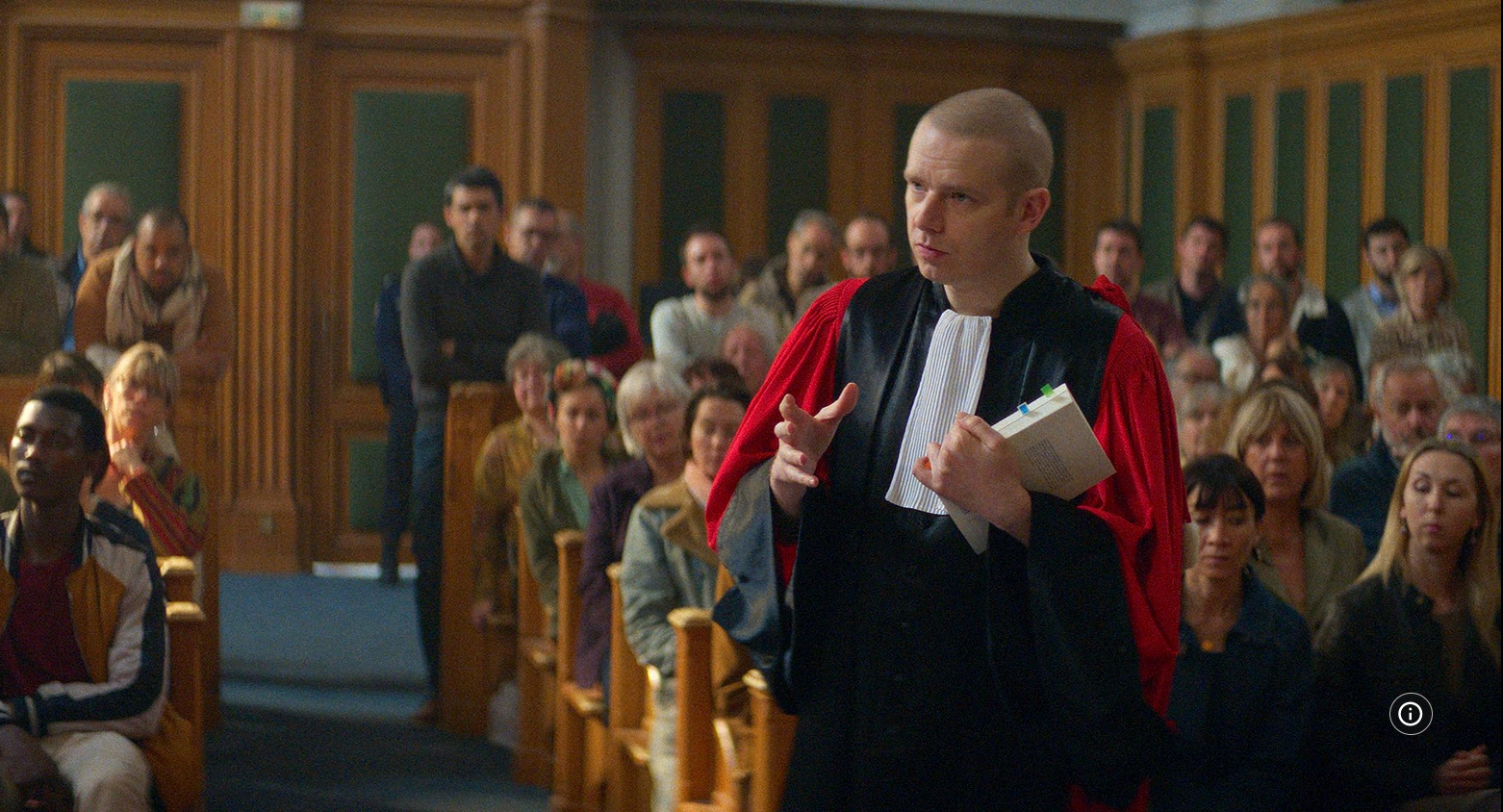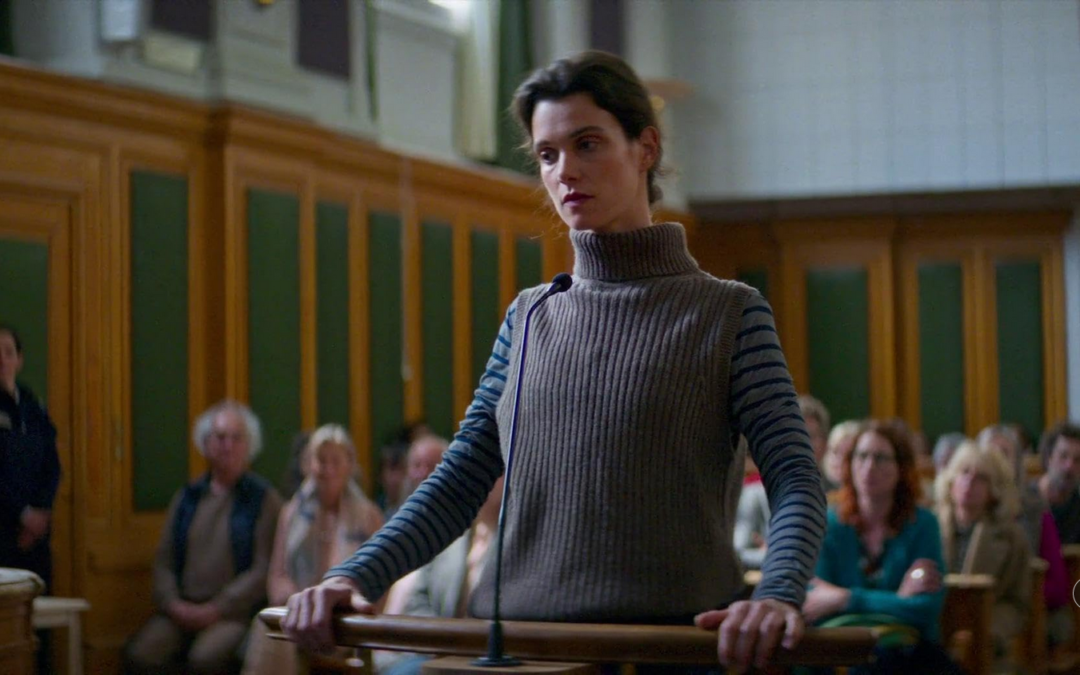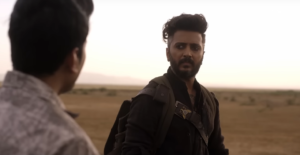For the past year, Sandra, her husband Samuel, and their eleven-year-old son Daniel have resided in a remote town nestled in the French Alps. Their tranquil existence is shattered when Samuel is discovered lifeless in the snow beneath their chalet. The authorities launch an inquiry to determine whether Samuel’s demise was self-inflicted or the result of foul play.
In the wake of Samuel’s enigmatic death, Sandra finds herself thrust into the spotlight as the primary suspect in a murder investigation. As detectives delve into the circumstances surrounding Samuel’s passing, they uncover a labyrinth of psychological complexities within Sandra and Samuel’s tumultuous relationship. Meanwhile, their sightless son Daniel, the sole witness to the tragedy, grapples with a profound moral dilemma.

“Anatomy of a Fall,” co-written by Arthur Harari and directed by Justine Triet, delves into the intricate narrative of Sandra, a successful writer who finds herself at the center of a courtroom drama following the mysterious death of her husband, Samuel. Vincent, a close friend and Sandra’s attorney, takes on the challenging task of defending her innocence, while Daniel, her visually impaired son, offers his unique perspective on the unfolding events.
At first glance, “Anatomy of a Fall” might appear to follow the conventions of typical procedural dramas. However, under Justine Triet’s direction, the film emerges as a sophisticated exploration of perception and truth. Triet’s ability to transcend genre boundaries is a testament to her directorial prowess, allowing the story to unfold with depth and complexity.
The courtroom scenes, rather than relying on clichéd drama, crackle with intensity, drawing viewers into a compelling narrative. Daniel, initially introduced in a manner that could seem contrived, is given depth and authenticity through Milo Machado’s portrayal, offering a complex viewpoint on the familial dynamics at play.
Sandra Huller’s performance as Sandra, a woman unapologetically navigating her career and desires while challenging societal norms, is nothing short of captivating. Her nuanced portrayal, blending restraint with fiery determination, earned her well-deserved recognition, including an Oscar nomination. Huller brings Sandra to life with a controlled yet powerful presence, anchoring the film with her magnetic performance.

The film delves into broader themes such as gender norms and the weight of sacrificing one’s family and career. It prompts viewers to reflect on societal expectations within marriages, striking a chord with its audience by challenging conventional norms.
This in-depth exploration traverses cultural and linguistic barriers, as Triet meticulously dissects the dynamics of Sandra and Samuel’s relationship, revealing the subjective nature of truth when observed from an external perspective. Supported by a multi-layered script and stellar performances, the film delivers a poignant examination of human connections.
Earning a rating of 4 out of 5, this movie resonates deeply with its audience, offering a thought-provoking and emotionally rich viewing experience.




